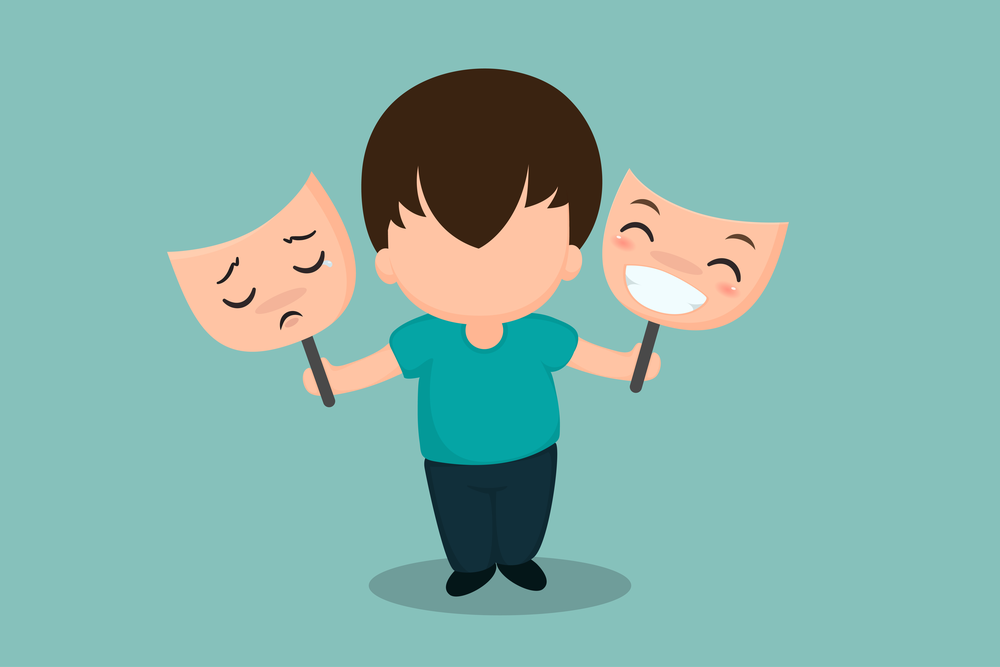A panic attack is an episode of intense sudden fear without an immediately obvious cause. These frightening episodes are rare, but they can occur in otherwise healthy people. Most people will experience one or two in their lifetime.
A panic disorder is characterized by semi-frequent panic attacks — far more than is normal or healthy. (Learn More)
Treating panic disorder usually begins with psychotherapy, where a person talks through their problems with a mental health professional. They may try to intentionally trigger panic attacks in a controlled environment, so they can learn to control the symptoms.
Medications can also be used to combat panic attacks. These can be very helpful. (Learn More)
While therapy from trained and licensed professionals comes with few negatives, medication carries the potential for side effects. These side effects can sometimes be serious and even dangerous. Familiarize yourself with the signs that your medication may be affecting you in a way that requires immediate attention. (Learn More)
In addition to medication and therapy, adjusting your lifestyle and learning to avoid stressors when possible can also help to reduce the symptoms of a panic disorder. While they are unlikely to erase symptoms on their own, changing your diet to be healthier, cutting caffeine, and other lifestyle changes can all help to reduce your symptoms. (Learn More)
If you or someone you know suffers from panic attacks, remember that it is a valid mental health issue. Panic disorder is not a sign of weakness. The person experiencing them has little control over when or why they happen.
Panic disorder warrants professional help. While completely erasing the symptoms is not always feasible, you can almost always dramatically reduce their severity and duration with therapy and medication. (Learn More)
Panic Attacks & Panic Disorder
A panic attack is a sudden episode of intense fear. These episodes come without real present danger or apparent cause.
A panic attack is a very frightening and disorienting experience. Most people will only experience one or two in their lifetime.
If you deal with panic attacks semi-frequently, you likely have panic disorder. You should speak to a doctor or mental health professional about how to deal with your panic attacks.
While panic attacks are not life threatening, they can dramatically reduce your quality of life. Their frequency and severity can usually be lessened.
Treating Panic Disorder
Psychotherapy is considered a first-choice treatment for most people suffering from panic attacks. Therapy will likely be a component of any treatment plan, even if medication is prescribed.
Psychotherapy, or talk therapy, involves talking with a mental health professional so you can learn how to cope with your panic attacks. Oftentimes, your therapist may attempt to trigger a panic attack in a safe environment to slowly dull their effects on you.
You will learn various strategies to deal with panic attacks. You’ll also identify triggers that proceed a panic attack. You can then avoid or deal with these triggers to reduce their effect on you.
Medications can also be used to treat panic attacks. If therapy alone does not quickly show results, it is likely you will be prescribed medication along with therapy.
Medications that are used to treat panic disorder include:
- Selective serotonin reuptake inhibitors (SSRIs). SSRIs are usually the first medication you and your doctor will try to control your panic attacks. They are safe for most people, although they carry a small risk of serious side effects.
For example, the SSRI fluoxetine (Prozac) has a low but real risk of a number of severe reactions that can be dangerous. It has been linked to suicidal thoughts in children, adolescents, and young adults. - Serotonin and norepinephrine reuptake inhibitors (SNRIs). This class of medications is often used to treat panic disorder. There is some debate over whether they should be used first, as there is evidence that they are safer overall.
SNRIs are not totally without risk. A severe reaction is still possible. Like SSRIs, they can cause suicidal thoughts in some users. - Benzodiazepines. A fairly serious class of drugs, these drugs are usually only prescribed for short-term use, as they can be habit-forming and have serious side effects. They also can have dangerous interactions with other drugs, including illicit and recreational drugs, such as opioids or alcohol.
Even so, they still can help users who are not seeing desired results from other options.
Risks Associated With Treatment
As long as a person works with a properly trained and licensed mental health professional, psychotherapy carries no risks. The only real downside is the cost (which is generally covered by insurance) and the time investment.
While learning to intentionally trigger a panic attack in a controlled environment can be stressful, it is generally considered safe. The process can greatly reduce the symptoms of future panic attacks.
Medications, which can be an essential part of controlling the symptoms of panic disorder, carry a more present (although still small) set of risks and downsides. Users of the medications that treat panic disorder can suffer from impotence, sleeping problems, stomach and digestion problems, and heart palpitations.
You should talk to your doctor about what to expect from any prescription medication you take, as some symptoms signal serious and potentially even life-threatening issues. Call a doctor immediately if you experience any of the following:
- Suicidal thoughts
- Breathing problems
- Seizures
- Confusion
- Severe weakness
- Coordination issues
- Loss of consciousness or a feeling of faintness
- High fever
- Rigid muscles
- Tremors
If you experience any symptoms that seem immediately dangerous, call 911 instead.
An allergic reaction warrants immediate medical attention. Symptoms of an allergic reaction include skin rash, hives, difficulty breathing, and swelling of the face, lips, tongue, or throat.
Further Supplemental Treatment
It’s important to learn how to control stressors in your life and make positive lifestyle changes.
A good diet and exercise regime can increase your self-confidence, relieve stress, and make you feel physically better.
Identify behaviors and drugs (especially caffeine, cigarettes, and alcohol) that may be stressful or otherwise trigger your panic attacks. Avoid these as much as possible.
While it’s not possible to cut all stress from your life, take steps to reduce it. Consider practices, like meditation or deep breathing, that can help to calm you throughout the day.
Lifestyle changes are not enough to address panic disorder. You’ll still need medication and therapy. But by reducing stress and finding positive outlets to release stress, you can often reduce the severity and frequency of your symptoms.
If you incorporate these changes in addition to medication and traditional therapy, you may experience more positive benefits in your life.
The Importance of Mental Health Awareness
Panic attacks and panic disorder are often misunderstood by the public. On the surface, they may simply seem like a person being strange, irrational, or cowardly. It is important to understand that a person having a panic attack is experiencing a level of fear most people will never, or very rarely, experience.
These panic attacks can come about for no easily identified reason. The person experiencing them has little, if any, direct control over them.
Panic disorder is a genuine problem that should be treated with respect and with the nuance of any other mental illness.
If you experience recurring panic attacks, seek help from a professional. It is not normal to experience that level of fear, and there are treatments available to help.
References
Panic Attacks and Panic Disorder: Symptoms & Causes. (May 4, 2018). Mayo Foundation for Medical Education and Research (MFMER).
Panic Attacks and Panic Disorder: Diagnosis & Treatment. (May 4, 2018). Mayo Foundation for Medical Education and Research (MFMER).
Panic Attacks and How to Treat Them. Child Mind Institute.
Prozac. (December 11, 2018). RxList.
Effexor XR. (April 2, 2019). RxList.
Panic Disorder: When Fear Overwhelms. National Institute of Mental Health.
Prescription Anxiety Medications. RxList.
Mindfulness Meditation for Panic Disorder. Verywell Mind.









